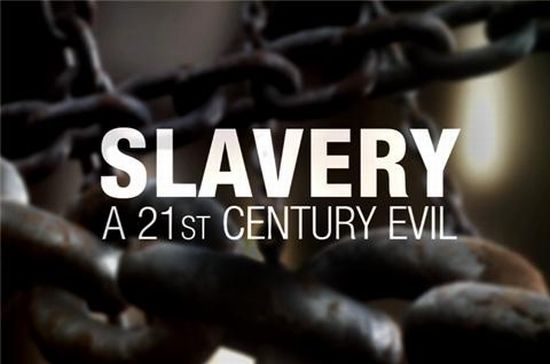In many Christian circles, when people think about why Jesus died on the cross, the following is the basic logic that many believe:
God is infinitely holy and righteous. As such, any sin against God is an infinite offense. Therefore, an infinite sacrifice is required to cover an infinite offense. Because humans are sinners, we deserve eternal punishment for our eternal offense. But God wanted to show mercy to us, and so He sent Jesus to die in our place. Since Jesus is God, the death of Jesus is an infinite sacrifice, which is therefore sufficient to cover the infinite offense of sin.
Though different authors, pastors, and teachers will explain the death of Jesus in different ways, this is the basic outline many will use. I used to teach and write about the death of Jesus in this same way, and in fact, many of the posts and sermons which you can find on this blog will contain this exact sort of theological explanation about the death of Jesus.

But let us look a little deeper at what this sort of explanation says about God, sin, righteousness, and the death of Jesus.
The logic of the argument above basically teaches that God gets so worked up over sin, He wants to burn forever and ever those who commit any sin. And since James 2:10 says that even one sin makes us guilty, it doesn’t even matter if we only commit “small” sins. Sin is sin, and even “small” sins deserve eternal hell fire. So if you get mad at your neighbor when his dog digs through your trash, or if you are not completely honest with your boss about why you were ten minutes late for work, God’s justice demands that you get punished the same as if you were serial rapist and mass murderer.
Though this seems unjust, people explain that it only seems unjust because we are sinful human beings and think that some sins are not as bad as others. We are told that since God is infinitely holy and righteous, all sins, no matter how small, are an infinite offense to His holiness. So even getting angry at our neighbor’s dog or lying about why we were 10 minutes late for work is an infinite affront to the righteousness of God, and therefore, deserving of infinite punishment.
But … things don’t seem so cut and dry when we rephrase the question a bit …
Look what happens when we turn the question around:
So it is wrong for me to get angry at my neighbor when his dog digs through my trash, but it is perfectly righteous for God to be eternally angry at me for getting angry at my neighbor? And while I vent my anger by muttering under my breath while I pick up the garbage in my lawn, God gets over His anger … never … while I burn for all eternity in hell?
When the question is presented this way, this sort of god just doesn’t seem very godly. Or at least … this sort of god doesn’t look at all like Jesus.
The typical response, of course, is that this why God sent Jesus. God didn’t actually want humanity to burn forever for muttering under our breath at our neighbor, but His justice demanded that He behave like this. God was sort of captive to His own righteous justice.
But since He loves us so much, He sent His Son Jesus to suffer and die in our place, so that all that “righteous” rage can get poured out on Jesus instead of on us.
Again, this is exactly what I used to believe and teach.
But in recent years, I have begun to have doubts that this is exactly what happened (Get my series of posts on the death and resurrection of Jesus to learn more.)
Problems with the Traditional Explanation of the Death of Jesus
Does it make sense to think that Jesus came to rescue us from God? Does it make sense to think that God sent Jesus to rescue us from Himself? Or at least, from some aspect of Himself?
IF so, God now appears rather schizophrenic. Does God want to kill us for all eternity or love us for all eternity? The theological explanation above makes it sound as if He wants both.
Furthermore, what good does it do for God to pour out His wrath upon the innocent victim, Jesus?
Let us say that after I get angry at my neighbor for letting his dog spread garbage all over my lawn, I go down the street and set a different neighbor’s house on fire. Does my act of arson do anything to relieve my anger at the first neighbor or his dog? No! Setting an innocent third party’s house on fire does not alleviate my wrath toward the guilty party at all. This would still be true if the innocent neighbor noticed my anger at my neighbor’s dog, and said, “Don’t be angry at him; instead, come burn my house down.”
I would look at him like he is crazy. How would burning down his house help me at all? Yet this is what we think happened with God’s wrath in the killing of Jesus. Somehow, though God was angry at us, His anger was appeased by letting us kill His Son? I just don’t see how that would help the situation.
But there are other problems beyond this.
God’s love and grace for us is supposedly unconditional. But if He couldn’t actually show us love and grace unless Jesus first came to die on the cross in our place, then isn’t that a condition on His love and grace? It seems that if Jesus had not come to die, then according to this traditional understanding of the death of Jesus, God could not have shown His “unconditional” love and grace for us.
 Furthermore, people say that God had to pour out His wrath against sin upon somebody (either us or Jesus) in order to satisfy his justice. Yet then we say that God did this out of His mercy.
Furthermore, people say that God had to pour out His wrath against sin upon somebody (either us or Jesus) in order to satisfy his justice. Yet then we say that God did this out of His mercy.
But this is logically impossible.
By definition, mercy and justice are mutually exclusive. If a man robs a bank and then goes to prison for 20 years, this might be considered justice. But what if, after the crook spends 20 years in prison, the judge meets him at the prison gates and says, “Aren’t I merciful to let you out of prison today?” The recently-freed man would say, “You’re not merciful. I just spent 20 years in jail. Mercy would have been setting me free 20 years ago.” You see? If justice is satisfied, there is no need for mercy. And if one chooses to show mercy, then by definition, they cannot also demand justice. Yet if God poured out His wrath upon Jesus to satisfy His justice, then God is a just God, but He is not merciful. On the other hand, if God decides to show mercy to humankind, then, by definition, He cannot demand justice, even justice upon Jesus.
I could go on and on about this, but here’s the point: There are numerous flaws with the idea that the death of Jesus paid the penalty for our sins or satisfied the wrath of God.
Logically and theologically, it just doesn’t work.
But there is a bigger problem still …
Jesus: The Pagan Sacrifice to God
A short while back I wrote a post about a few things Christians can learn from Pagans. A guy on Facebook blew up about this, leaving comment after comment after comment about how ridiculous it was to suggest such a thing. He argued that Paganism has infiltrated Christianity in numerous ways, and we must root out and destroy all such pagan influences, traditions, and customs.
I know where he is coming from, but I just think that (1) his position is logically, theologically, and realistically impossible, and (2) the most pagan things about Christianity are found at the core beliefs and behaviors of many Christians — especially those who are on the war-path against pagan influences.
In my experience, for example, those who are most concerned with getting rid of all pagan influences in Christianity, are also those who tend to be the most judgmental and critical toward those Christians who still incorporate some of those pagan traditions and customs. But which is more pagan: putting tinsel on a Christmas tree or judging and condemning the people who do?
What does all this have to do with the death of Jesus?
At the core of much of Christian theology is the pagan idea that God requires blood sacrifice to forgive sins. The vast majority of Christians believe that God hates sin so much that He is filled with wrath toward sin.
He hates sin so much, we are told, that He cannot even be in sin’s presence.
But, we are told, God’s wrath toward sin can be appeased with blood. God needs someone to pay for the eternal offense of sin against Him and His holiness. Thankfully, as the theory goes, just when God was demanding that all of us wretched sinners open our veins for God to appease His wrath toward us, Jesus stepped up and said, “I’ll take the bullet. I’ll die for them all.”
So Jesus came to earth, died as a sacrifice for our sins, poured out His blood upon God’s heavenly altar, and in so doing, appeased the wrath of God.
When God looks at us now, He doesn’t see sin; He sees Jesus. Therefore, instead of wanting to incinerate us, God can now love us.
Again, this is the basic sort of theology we hear in most churches about the death of Jesus and why He had to come and suffer and die.
But do you know where this entire theology comes from? Not from Scripture, but from Paganism!
Almost every religion in the world has the idea that the gods are mad at us for our sin, and we must do things to appease their wrath. We must sacrifice our goats, and make vows to visit holy places, and commit to treating people with more love (or commit to killing certain “enemies” of the gods).
When our sin is really serious, the gods want blood, whether it is our own blood, or the blood from someone in our family. As a last resort, the gods may accept the blood of a valuable animal.
And yes, I know that the most popular way of reading the Old Testament sees support for this idea in the Mosaic Law. When most people read the laws that are recorded in Leviticus and Deuteronomy, they see an angry god who wants blood.
But this sacrificial way of reading the Bible is influenced heavily by paganism, and is not at all what Scripture teaches.
 When the Pentateuch is understood in its entirety, it appears that the message of the Pentateuch is that God was never angry at people and never wanted sacrifices and offerings, but wanted instead a people for Himself who lived by faith in God and with justice and mercy before a watching world. See Sailhamer’s magnum opus for more on this.
When the Pentateuch is understood in its entirety, it appears that the message of the Pentateuch is that God was never angry at people and never wanted sacrifices and offerings, but wanted instead a people for Himself who lived by faith in God and with justice and mercy before a watching world. See Sailhamer’s magnum opus for more on this.
Furthermore, when the Israelite prophets come on the scene, nearly all of them decry and condemn the sacrificial system as not at all reflecting what was in God’s heart. Jeremiah says that God never commanded his people to offer sacrifices and burnt offerings (Jeremiah 7:22-23). Amos says that God hated their religious festivals and burnt offerings (Amos 5:21-24). Micah points out that God doesn’t need thousands of rams and rivers of oil, and definitely not a family’s firstborn son. Instead, God wants justice, kindness, and humility (Micah 6:6-8). God is not delighted with sacrifices and offerings, says the Psalmist, but with a broken and contrite spirit (Psalm 51:16-17).
So it is no surprise, when Jesus comes on the scene, that He tells people through His words and His actions that God is not angry with His people, that He does not want more sacrifices and offerings, that He loves, accepts, and freely forgives all people, no matter what.
While Jesus did proclaim freedom from sin, He did not do so on the basis of the sacrificial system (or even His own sacrifice), but simply on the basis of God’s limitless love, mercy, grace, and forgiveness.
God forgives, simply because He is a loving and forgiving God. End of story. No sacrifices, offerings, blood, or death are required.

So Why Then Did Jesus Die?
When Jesus went to the cross, He did not die for God.
There are numerous reasons Jesus died. One was to put death to death. Another was to defeat sin and the devil (cf. Heb 2:14-18; Rom 6:4-13; 1 Cor 15:22, 45). But one reason I want to focus on here is that Jesus wanted to expose the lie of the scapegoat: the religious lie that an innocent victim must die for sin.
To put it bluntly, Jesus died to expose religion as a big, fat, satanic lie.
In His death, Jesus put to death the religious requirement of death. In His death, Jesus exposed the emptiness of the sacrificial system for what it was: a form of satanic enslavement by which humans think they are appeasing God for that which He had already forgiven them for.
Religion says: God is angry with you, but will forgive you if you do great things for Him and offer valuable things to Him. By going to the cross under the condemnation of religion, and then being raised again to new life, Jesus exposed the powerful and satanic lie of religion.
Through His death and resurrection, Jesus announced loud and clear that God is not angry at sin, and that just as sin, death, and the devil have no hold on God, they have no hold on us either.
God is not angry at sin. If He’s angry at anything, He is angry at enslavement. God wants us to live free.
And while sin does enslave, the greatest slaver of all is religion.
As such, God wants to free us from religion more than He wants to free us from sin. This is what Jesus proclaimed through His life, death, and resurrection.
The Resurrection of Religion
Sadly, within a few short years of Jesus’ ascension, Christians returned once again the sacrificial mentality of religion. They took the satanic desire to appease God through sacrifice and applied it to Jesus Christ, saying that Jesus was the perfect sacrifice which appeased God once and for all. And ever since this shift was made under Augustine and Anselm, Christianity has been little more than another world religion which seeks to appease God through good behavior and personal sacrifice.
So if people truly want to rid themselves of all things pagan, they need to start not with their holidays and traditions, but with their theology.
Most specifically, we need to rid ourselves of this idea that God is angry at us for our sin and needs to be appeased through blood and sacrifice. This has never been true of God and is not true today.
The sacrificial reading of Scripture is a pagan reading of Scripture, which does not represent the heart of God, but represents a pagan view of God in which God is angry and must be appeased through sacrifice and human merit.
In contrast to this, the God revealed in Jesus Christ is not angry, but loves freely and forgives freely. No ifs, ands, or buts. The death of Jesus did not secure for us the forgiveness of God. God already forgave us freely by His grace.
Now, some of you might be thinking about Hebrews 9:22. But this post is already WAY too long, and an examination of Hebrews 9:22 deservers a post of its own.
The cross of Jesus is CENTRAL to everything!
Transform your life and theology by focusing on the crucifixion and resurrection of Jesus:
Fill out the form below to receive several emails from me about the death and resurrection of Jesus.
(Note: If you are a member of RedeemingGod.com, login and then revisit this page to update your membership.)




 Have you ever listened to some of the songs Christians sing around Easter? We seem to be infatuated with the blood of Jesus.
Have you ever listened to some of the songs Christians sing around Easter? We seem to be infatuated with the blood of Jesus. These songs have images of a bloody river and a fountain filled with blood drawn from Emmanuel’s veins. Yikes! Some Christian songs sound more like a gruesome and gory scene from a Freddy Krueger movie than from something having to do with Jesus Christ.
These songs have images of a bloody river and a fountain filled with blood drawn from Emmanuel’s veins. Yikes! Some Christian songs sound more like a gruesome and gory scene from a Freddy Krueger movie than from something having to do with Jesus Christ. They report the details of what happened and what was said, but they report almost nothing about the gruesome nature of crucifixion or the pain that Jesus must have endured.
They report the details of what happened and what was said, but they report almost nothing about the gruesome nature of crucifixion or the pain that Jesus must have endured.

 The crucifixion and resurrection of Jesus forms the foundation for everything I write on this blog. Everything.
The crucifixion and resurrection of Jesus forms the foundation for everything I write on this blog. Everything.
 Welcome to the new website: RedeemingGod.com
Welcome to the new website: RedeemingGod.com
 For right now, people can still get Skeleton Church for free by subscribing to my email newsletter. This might change in the future, but it might not. I don’t know if I will publish more books in the future or not. I suspect I will, but I don’t know when, I don’t know what, and I don’t know how. If I do publish more books, and I am able to send them out for free to people who get my blog updates, I will do so.
For right now, people can still get Skeleton Church for free by subscribing to my email newsletter. This might change in the future, but it might not. I don’t know if I will publish more books in the future or not. I suspect I will, but I don’t know when, I don’t know what, and I don’t know how. If I do publish more books, and I am able to send them out for free to people who get my blog updates, I will do so.



